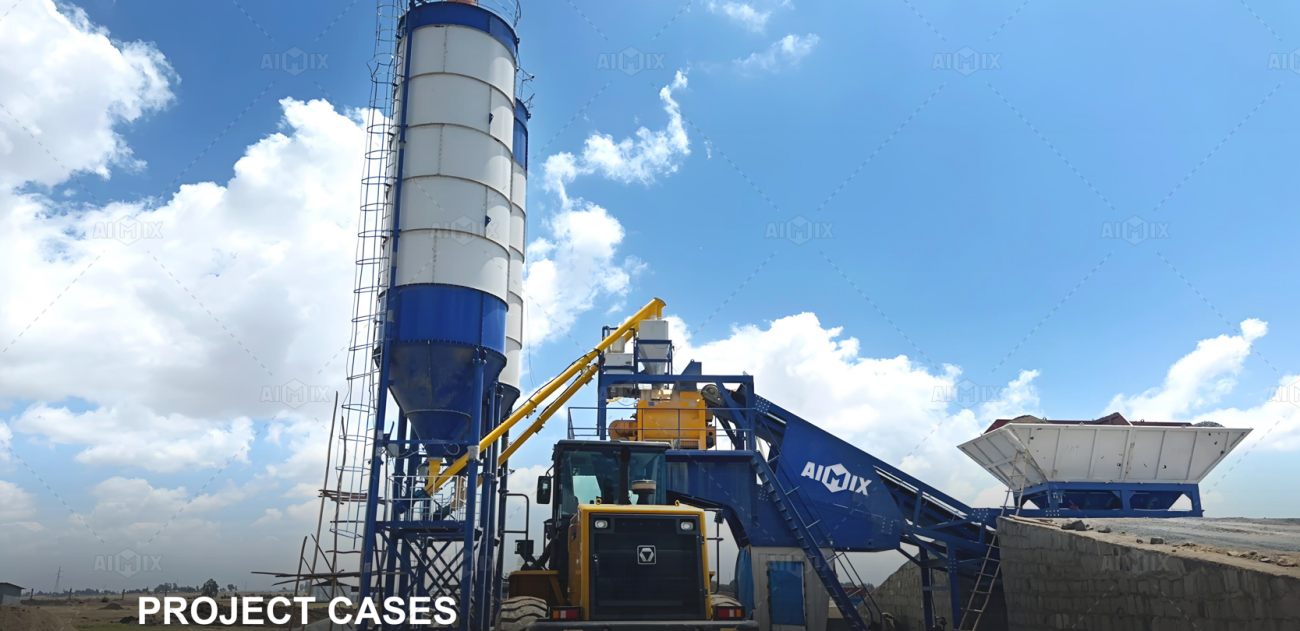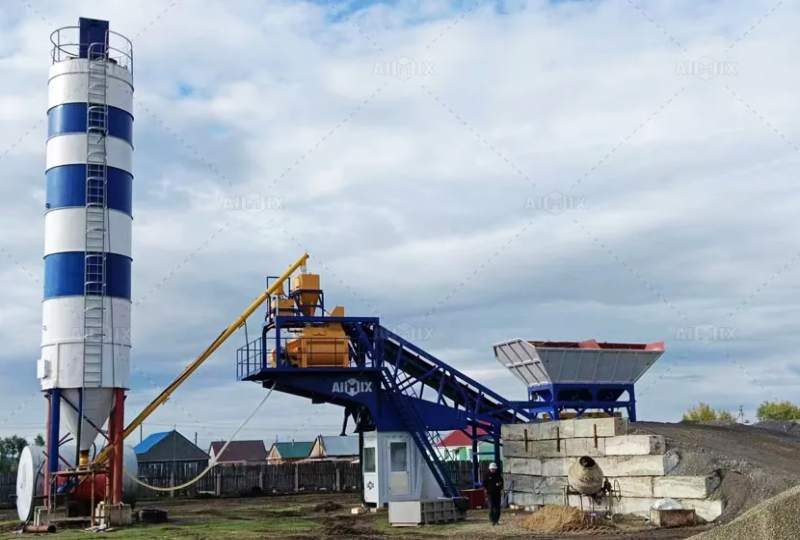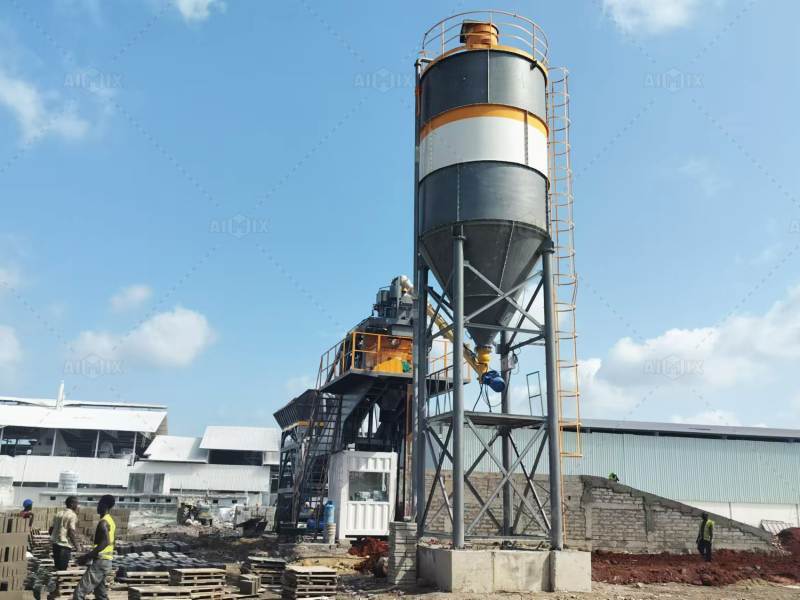In the modern construction industry, sustainability and efficiency have become essential drivers of project success. Mobile concrete mixer plants are playing an increasingly important role in promoting environmentally friendly construction practices. By integrating green materials, optimizing energy usage, and offering flexible deployment, these plants enable contractors and developers to reduce their environmental footprint while maintaining high-quality concrete production. The adoption of mobile concrete batching plant Philippines, mobile batch plants Australia, and mobile concrete batching plant UK illustrates how this technology is transforming construction practices worldwide.

Understanding Mobile Concrete Mixer Plants
A mobile concrete mixer plant is a self-contained, transportable system designed to mix and deliver concrete on-site efficiently. Unlike traditional stationary plants, mobile plants can be relocated between job sites, providing flexibility for large infrastructure projects, urban construction, and temporary work sites. They integrate all essential components, including storage bins for aggregates, cement silos, conveyors, mixers, and control systems, into a compact, transportable unit.
The mobile design allows for quick setup, minimal installation requirements, and immediate deployment, which is particularly useful in regions with variable construction demands or remote locations. This adaptability supports sustainable construction by reducing the need for transporting raw materials over long distances and minimizing associated fuel consumption and emissions.
Green Materials in Mobile Concrete Mixer Plants
Sustainable construction relies on using environmentally friendly materials that reduce carbon emissions and conserve natural resources. Mobile concrete mixer plants support the use of green materials in several ways:
Recycled Aggregates
By incorporating crushed concrete, reclaimed asphalt, and other recycled materials, mobile concrete mixer plants can produce high-quality concrete while diverting construction waste from landfills. This practice is increasingly common in projects using mobile concrete batching plant Philippines for urban construction, where space is limited, and recycling is prioritized.
Supplementary Cementitious Materials (SCMs)
Materials such as fly ash, slag, and silica fume can partially replace Portland cement in concrete mixes. Using SCMs reduces CO₂ emissions from cement production while improving concrete durability. Mobile plants allow precise proportioning of these materials, ensuring consistent quality and sustainability.
Low-Carbon Binders and Additives
Advanced mobile batch plants in regions like Australia and the UK are capable of integrating low-carbon binders and chemical additives, which further reduce environmental impact without compromising concrete performance. These innovations make mobile concrete mixer plants an essential tool for green construction initiatives.

Energy Efficiency in Mobile Concrete Mixer Plants
Energy consumption is a significant factor in the environmental impact of concrete production. Modern mobile concrete mixer plants are designed to optimize energy use in multiple ways:
-
High-Efficiency Mixers: Modern mixers consume less power per cubic meter of concrete while maintaining uniform quality. This efficiency is particularly important for mobile batch plants used in large-scale projects in Australia, where energy costs can be substantial.
-
Automated Controls: Advanced control systems regulate material flow, mixing time, and batching sequences, reducing unnecessary energy consumption and minimizing human error.
-
Reduced Transportation Energy: By producing concrete directly on-site, mobile plants decrease the need for transporting concrete from distant stationary plants, cutting fuel usage and emissions. This is a key advantage for projects in regions served by mobile concrete batching plant UK, where urban congestion can increase transport-related emissions.
-
Renewable Energy Integration: Some mobile plants are now equipped with solar-powered systems or energy recovery mechanisms, further reducing the environmental footprint.
Applications in Global Markets
Mobile concrete batching plant Philippines has gained popularity in urban construction and infrastructure development due to limited space and the need for flexible deployment. These plants allow contractors to produce fresh concrete close to the construction site, reducing waste, transport costs, and environmental impact.
In Australia, mobile batch plants are widely used for large infrastructure projects such as highways, bridges, and mining operations. Their ability to handle high-capacity production while incorporating sustainable materials makes them ideal for eco-conscious projects and remote locations.
Similarly, mobile concrete batching plant UK supports sustainable urban development, including residential and commercial construction. Their flexibility allows for on-demand concrete production with reduced site disruption, lower emissions, and minimized noise pollution—key considerations for sustainable construction in dense urban areas.


Best Practices for Sustainable Operation
To maximize the sustainability of mobile concrete mixer plants, operators should follow several best practices:
Optimize Mix Designs: Use recycled aggregates, SCMs, and low-carbon binders to reduce the environmental impact of concrete production.
Minimize Waste: Accurate batching and automated mixing reduce leftover concrete and material wastage.
Energy Management: Monitor energy consumption and employ high-efficiency mixers and conveyors to conserve power.
Regular Maintenance: Well-maintained equipment operates more efficiently, reducing energy use and emissions.
Training and Awareness: Educate staff on sustainable practices and ensure adherence to environmental standards.
Conclusion
Mobile concrete mixer plants are revolutionizing sustainable construction by combining flexibility, efficiency, and environmentally friendly practices. Whether using a mobile concrete batching plant Philippines, mobile batch plants Australia, or a mobile concrete batching plant UK, these systems enable the integration of green materials, optimized energy consumption, and reduced transport emissions.
As sustainability becomes a core requirement for construction projects worldwide, the adoption of mobile concrete mixer plants is likely to increase. Their ability to produce high-quality concrete while supporting eco-conscious practices positions them as a crucial tool for modern construction, helping contractors meet both performance and environmental goals efficiently.